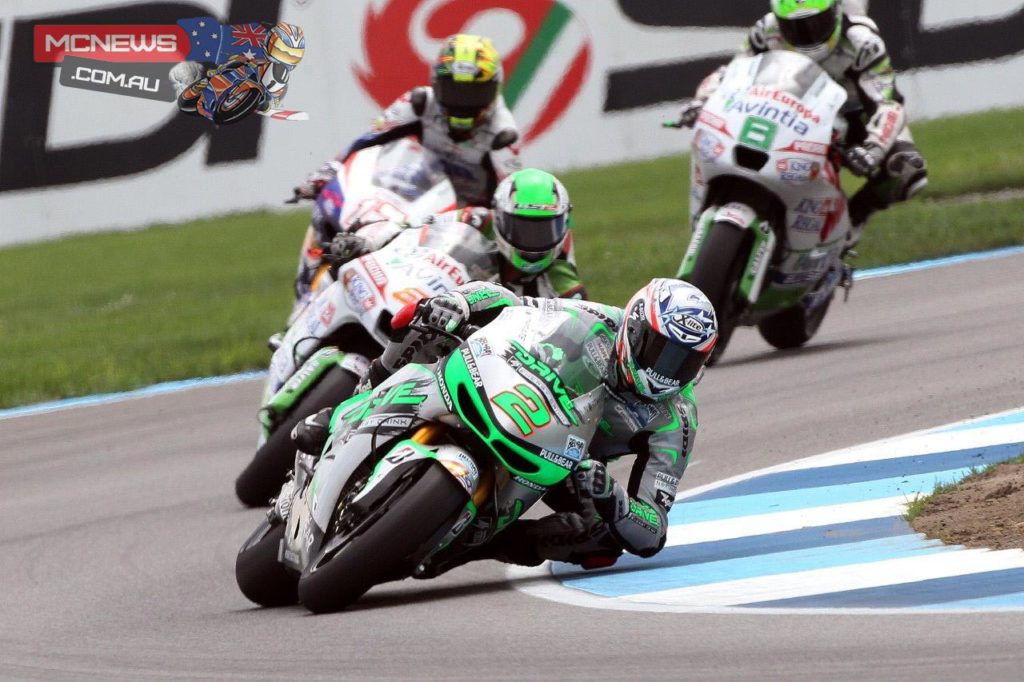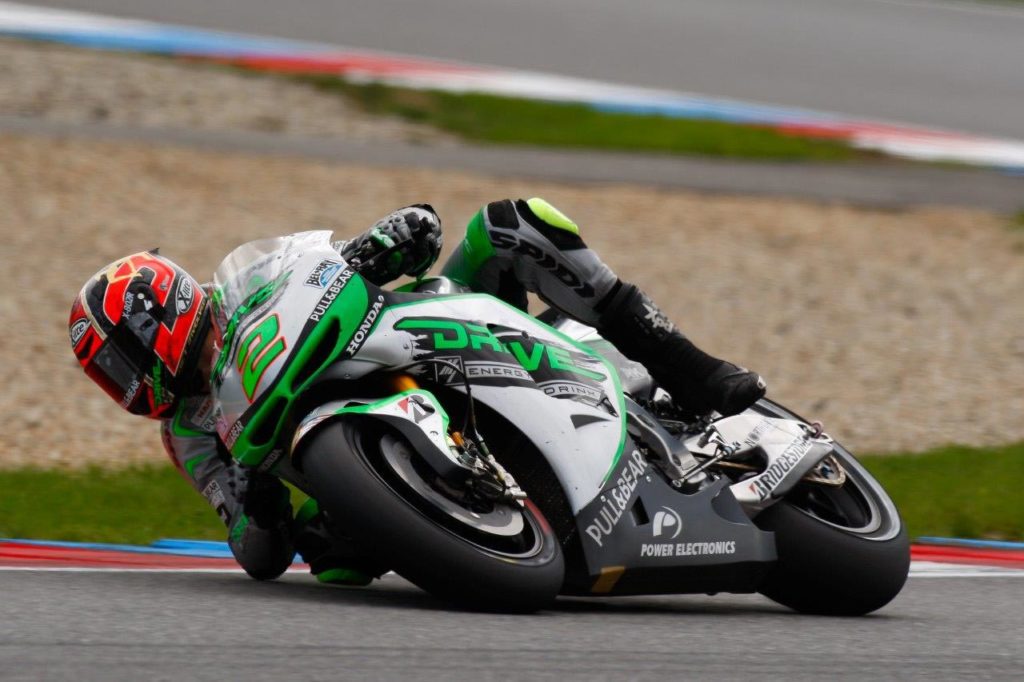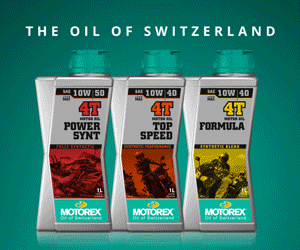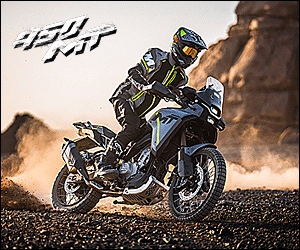Leon Camier Interview | “The first thing I thought when I saw the Honda was that I wouldn’t fit!”

Leon Camier is a true Brit, resident in Andorra, who looks like he could have been anything other than a motorcycle racer. A towering 190 centimetres tall, with a youthful smile and good English manners, Camier prefers to do his talking on the track. He recently made his MotoGP debut at the ripe age of 28, stepping in for the injured Nicky Hayden at the DRIVE M7 Aspar Team, and he has impressed everybody with his adaptation to Grand Prix machinery. A former 125cc youngster but a Superbike rider for the majority of his career, Camier has slotted in smoothly with the Spanish team and not only managed to finish the race at Brno but he did so in the points. Now he returns home to Silverstone with another chance to impress.
First obvious question… what’s the difference between a MotoGP and a Superbike?
The electronics in MotoGP are much more advanced, the anti-wheelie control is incredible. MotoGP is also less physical than Superbikes, not just because the bike is lighter but also the way you ride it is completely different, you can rely a lot on the electronics. The tyres are also totally different, you have to find the limit in MotoGP and work out how to get the best out of the rubber. The suspension helps with this but there is just so many things, so much information… but basically the main difference lies in the electronics, tyres and suspension.
What do you think the secret is to your rapid adaptation to MotoGP?
The DRIVE M7 Aspar engineers laid out a very precise plan when I arrived to help me learn the machine as quickly as possible. They knew which direction we had to go in from the start and that helped me progress. It was also important for me that there was no pressure, no set targets, and the objective was just to learn and enjoy myself. I tried to stay focused and to work with an open mind, to process the information in the most efficient way possible. I gradually built my confidence and the rest came with time. The team has helped me a lot and without their direction I wouldn’t have adapted so quickly. Also the fact that Frankie Carchedi [and engineer that has helped Leon win races in the past] has been my telemetry engineer has been a big help.
How have you fitted in with the team?
The team help me with every decision, which has made my progression and adaptation much easier. They put me on the right track as soon as I arrived and every single member of the team has been nice to me, which has made everything easier. I feel comfortable, relaxed and that makes it easier for me to concentrate on my job. The atmosphere has felt very familiar from the start, in the garage and on the grid I’m able to bounce things off Jorge, Gino and the mechanics and that helps us to form a clear strategy for every session. The fantastic welcome they have given me is making my MotoGP experience very enjoyable.
What are the strengths of the Honda RCV1000R, what do you like most about it?
Its strongest point is the chassis, which gives you incredible feedback and helps you to quickly find the limit. Obviously I have a lot of room to improve but in my first two races on the Honda the feeling with the bike has been really good. The electronics also help you to understand the bike and ride it relatively easily. As I said before the ‘anti-wheelie’ control is probably the best I have ever tried.
At the start you didn’t think you were going to fit on the Honda RCV1000R…
If I am honest, the first thing I thought when I looked at the Honda in the garage was that I wouldn’t fit! But that bike was set up for Nicky. Once we adapted it to my size it was really comfortable.
Now that you have had a taste of MotoGP would you like to stay?
Of course, I would love to be in this championship next year. But we’d have to weigh up the options, in particular the bike package because I don’t want to stay here at all costs. Whatever championship I race in next season I want to be on the best possible material. With testing and enough time on the bike, I would love to get a chance in MotoGP.
You are familiar to the MotoGP paddock from your time in the 125cc class back in 2003. What are your memories of that era?
To be honest I was very young, I don’t remember a lot. I was too much of a kid to take certain things in but what I did learn was the importance of having a good team and the right equipment to get good results. MotoGP is an interesting World Championship but it is also very tough.
A points finish in your second MotoGP race, that’s some achievement…
I am happy with how everything has gone since I joined up with the DRIVE M7 Aspar Team and I really enjoyed the last race, battling with a few riders at the start and continuing to learn a lot about this category. That experience helped me to learn more about the bike and to understand the strengths of the Honda. I learnt a lot from my first full race distance and we gathered a lot of information that should hopefully help us in the next Grand Prix.
How would you define Leon Camier as a rider?
Difficult question! Right now, in terms of this MotoGP experience, I am trying to stay very focused to absorb everything as quickly as possible and to make quick progress. I think the key is attitude, the appetite to learn from every situation. I am quite decisive on track and I guess that the more I get to know the bike the more aggressive I’ll be able to be when up against the other guys.
And how about away from racing?
I am a normal guy, focused on what I’m doing, always trying to get the most out of my training. I think that the harder you train when you’re away from the track, the more it can help you on the bike. I am happy and I enjoy my job. I think anything is possible through hard work so I take it very seriously, I look after my body to be as fit and healthy as possible and to enjoy the thing I love the most, which is riding motorcycles.
Next weekend you’ll be racing in your home Grand Prix, what are you hoping for?
I love Silverstone and I have some great memories there from the last few years. It will be a tough weekend because we have a lot of work to do to keep improving but the important thing is to keep the same mentality and work ethic. I think the best thing is to not build our hopes up but to go out there and keep doing our job. If we can stay focused and keep improving then the results will come for sure.
























